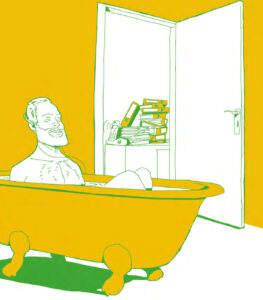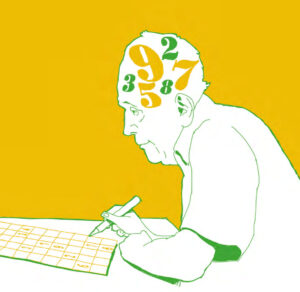It is understandable to think that once you starts to lose your memory, it might not come back. However, in most cases there are practices or solutions for dealing with memory lapses and improving your memory. The most obvious first step is consulting a doctor to get a proper diagnosis and recommended treatment. A doctor may be able to determine the cause of your memory loss.
Memory loss can be reversed, depending on the cause. A few of the types that can often be reversed are caused by depression, thyroid problems, alcohol abuse, dehydration, and side effects of medication.
Since aging is a part of life, it is ideal for us to take steps in preventing cognitive loss early. One practice which compensates for memory loss is staying social. By sharing strong ties with others and having quality face-to-face interactions, this greatly reduces stress and lowers risk of experiencing memory loss.
 Stress management is another great practice, and solutions vary based on the individual. The issue of handling stress could be solved simply by organizing your day in a planner or even taking a few minutes each day to practice meditation. For cases of stress or anxiety that are more severe, seeking out professional help from a therapist, psychiatrist, or wellness center would be best.
Stress management is another great practice, and solutions vary based on the individual. The issue of handling stress could be solved simply by organizing your day in a planner or even taking a few minutes each day to practice meditation. For cases of stress or anxiety that are more severe, seeking out professional help from a therapist, psychiatrist, or wellness center would be best.
The physical health of the body must also be maintained as is pertinent directly to the function of the brain. Starting a regular exercise routine is another practice in reducing an individual’s chance of dementia by 50 percent. Coupled with exercise, your diet also has dramatic effects on your cognitive health. Food that is rich in antioxidants such as fruits and vegetables keep the brain cells healthy, while omega-3 fats such as salmon and walnuts also strengthen the brain.
Lifestyle habits such as smoking increases your risk of vascular disorders which decrease the flow of oxygen to your brain. A decreased supply of oxygen deteriorates the brain’s cells, speeding up the process of age-induced memory loss. Avoid such practices will not preserve the brain longer but will not stimulate the deterioration process.
Just as you can train your physical body, you can also train your brain through a wide range of exercises.  Some simple exercises you could perform to improve your brain power would be by playing unfamiliar, but challenging games involving strategy such as Sudoku, reading a newspaper or thought-provoking book, or actively making a point to learn something new. You can also improve on the skills you already possess and activities you normally partake in. Planning and designing projects are also a great stimulant for the brain.
Some simple exercises you could perform to improve your brain power would be by playing unfamiliar, but challenging games involving strategy such as Sudoku, reading a newspaper or thought-provoking book, or actively making a point to learn something new. You can also improve on the skills you already possess and activities you normally partake in. Planning and designing projects are also a great stimulant for the brain.
Besides these activities, the most important aspect of your lifestyle where you can improve your brain function and memory is proper sleep. Sleep is crucial to the process of forming and storing new memories so one can retrieve them later.
IN SUMMARY
All factors considered, once you feel like you are starting to lose your memory function, take a step back and observe your lifestyle. Speak with a professional and come up with a plan to improve. Beyond maintaining or improving your memory, stimulate a healthy lifestyle overall way before signs of memory loss even appear. An ounce of prevention is worth a pound of cure, as they say.
Leave a Reply